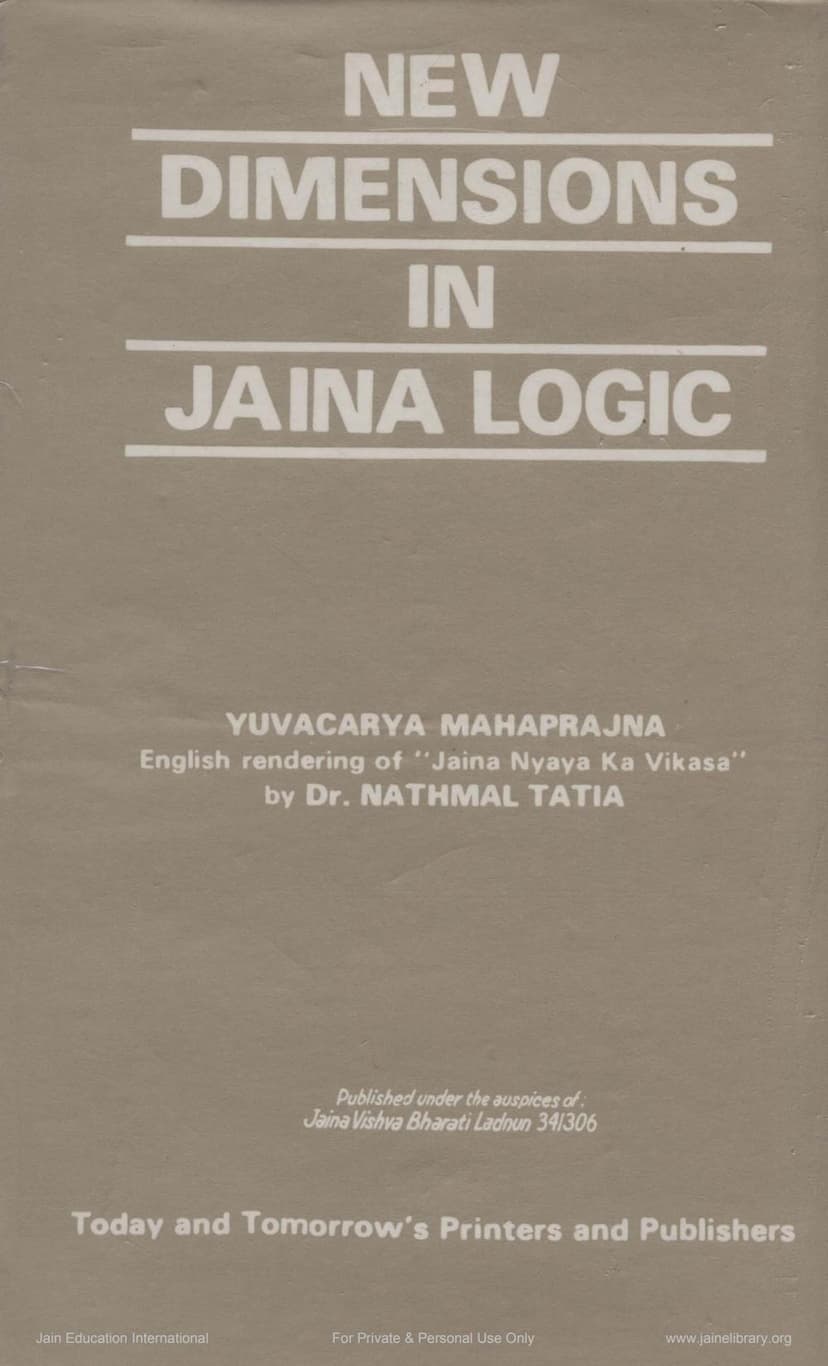New Dimensions In Jaina Logic
Added to library: September 2, 2025

Summary
"New Dimensions in Jaina Logic" by Yuvacarya Mahaprajna, with an English rendering by Dr. Nathmal Tatia, is a critical exploration of Jaina logic, delving into its historical development and key doctrines. The book is based on a series of nine lectures delivered by Yuvacarya Mahaprajna at the University of Rajasthan.
The work systematically examines the core tenets of Jaina logic, including:
-
Anekanta (Non-absolutism): The book elucidates this fundamental Jaina principle, which posits that reality is multifaceted and can be viewed from various standpoints. It discusses how this doctrine rejects dogmatic assertions and embraces experience supported by unbiased reasoning. The authors explore the axioms of non-absolutism, such as the concomitance between the universal and particular, the permanent and impermanent, existence and non-existence, and the speakable and unspeakable.
-
Nayavada (Doctrine of Standpoints): This doctrine recognizes the infinity of objective modes and the corresponding infinity of subjective approaches to understanding reality. The book critically examines the relationship between naya and niksepa (classification of imports of words), highlighting how different standpoints provide partial yet valid perspectives on reality.
-
Syadvada (Doctrine of Conditional Dialectics) and Saptabhangi (Sevenfold Predication): The text provides a historical survey of these doctrines, emphasizing their role in expressing the conditional and multifaceted nature of reality. Syadvada, characterized by the use of the term 'syat' (in some respect), allows for nuanced statements that acknowledge multiple perspectives. Saptabhangi, the sevenfold predication, systematically applies these principles to predicate existence, non-existence, and indescribability of an object.
-
Inference and Universal Concomitance: The book critically analyzes the Jaina contributions to the understanding of inference (anumana) and universal concomitance (vyapti or avinābhava). It highlights the Jaina emphasis on anyathānupapatti (logical impossibility in the absence of the other) as the sole characteristic of a valid probans. The authors also discuss the role of reasoning (tarka) in establishing universal concomitance and its relation to modern scientific concepts.
-
Organs of Knowledge (Pramana): The book details the Jaina classification of knowledge into direct (pratyaksa) and indirect (paroksa) means. It elaborates on the various types of knowledge, including sensory, mental, scriptural, clairvoyance, mind-reading, and omniscience, and critically examines their validity and limitations. The unique Jaina perspective on the self-validity of knowledge and the possibility of omniscience in human beings is also discussed.
Throughout the book, the authors integrate logical analysis with historical context, drawing connections between Jaina philosophical concepts and contemporary thought. The inclusion of dialogues at the end of each chapter further clarifies complex ideas and encourages critical engagement with the subject matter. The work also provides valuable appendices, including a bibliography and brief life sketches of prominent Jaina logicians, making it a comprehensive resource for understanding Jaina logic.